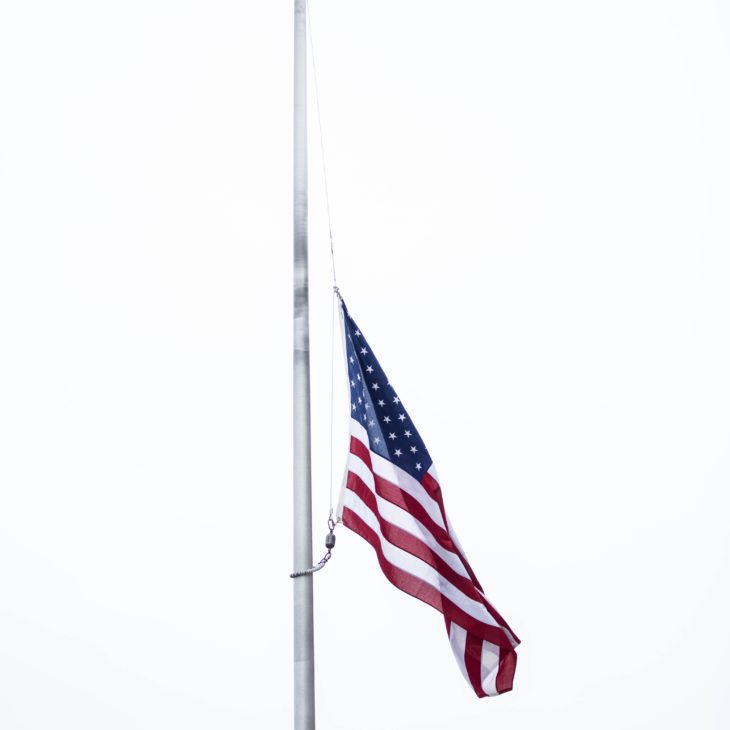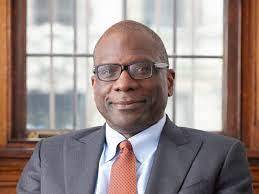Interfaith America, We Have Work to Do: A Reflection on the Buffalo Massacre
May 15, 2022

The earth is the Lord’s and the fullness thereof; and all those who dwell therein.
There are many windows through which to view the motivations that led an 18-year-old white man to drive two hours to a predominantly black neighborhood and its major grocery store to try to kill as many black people as possible.
There is pure racism and racial hatred; the desire to be a copycat of others who are guilty of mass killings; the supercharged atmosphere fomented by elected officials and others. And there’s the great replacement theory, a repugnant century old theory that at its core suggests that Jews are working to replace white (Christian) Americans with black people and brown skin immigrants. Early evidence suggests this version of the theory was a significant motivating factor for the heinous massacre that took place at the Tops grocery store in Buffalo.
As a person of faith, I ask myself how to respond. These mass shootings, which are uniquely American, are so frequent, I ask what more is there to say? At times it feels as if we’re on a treadmill which completes one revolution of violence, only to begin another, all while we offer condolences, thoughts and prayers. But is there something else to be said in this case? Perhaps. If we reflect just briefly on the great replacement theory and our faith.
The Psalmist reminds us that we are all here because of the creative, generative nature of the universe. None of us has more claim to this real estate and its resources than any other. In every way, the great replacement theory runs counter to the fundamentals of the created order. We’re here not of our own accord, not because we’re white or black or brown, but because the Universe put us here. None of us has any greater claims over any place on this Earth than any other. We can swear our allegiances to government and choose to pitch our tents in particular lands. But others can choose to do the same, and in greater numbers than our tribe. That’s not replacement; it’s the natural occurrence of this Universe.
Interfaith and bridge building work requires us to join with all people of good will, regardless of faith or no faith, to advance the fundamentals of what it means to live in a diverse world bequeathed to us by the Creator/the Universe for our stewardship and care. Foundational to our mutual stewardship and care is the reality of the equality of all people, which must be embraced and imparted generation to generation.
At Interfaith America, this is our mission, to focus on what unites us; to advance an understanding of our common humanity; to build bridges among communities that promote diversity and inclusion and common cause.
At Interfaith America, we have a lot of work before us. Just this past week, we changed our name to become Interfaith America; commemorated our 20-year anniversary; and laid plans for our future. We believe it’s essential to nurture, support and sustain the world’s first experiment with a religiously, racially and culturally diverse democracy. We believe one fundamental way to do this is to hear afresh the words of the Psalmist: The earth is the Lord’s and the fullness thereof; and all those who dwell therein.
We each are of everything but ultimately own nothing. My tribe is no more special than yours. We are all in this together. Children and youth must understand the world is not a zero-sum place where your gain is my loss. We need instead to encourage and inspire generations to come to build bridges of cooperation and mutuality, not to fear the new neighbor but instead to be rooted in the reality of the unity and common cause in our diversity. We all belong to the Universe. In my tradition, we all belong to God. There’s no such thing as being replaced.
Share
Related Articles

The Rev. Frederick Davie
The Rev. Frederick Davie is Senior Advisor on Racial Equity at Interfaith America, where he executes programming with a primary focus on the intersection of race and religion. He recently served as the Executive Vice President at Union Theological Seminary. In June 2020, US Senator Charles Schumer appointed him to the US Commission on International Religious Freedom, an independent, bipartisan commission dedicated to defending the universal right to freedom of religion or belief abroad. President Barack Obama appointed Rev. Davie to the inaugural White House Council on Faith-based and Neighborhood Partnerships in 2009. He is a minister in the Presbytery of New York City. He serves on the boards of Interfaith Center of NY, Climate Reality Project, and is a Commissioner for the U.S. Commission on International Religious Freedom.



